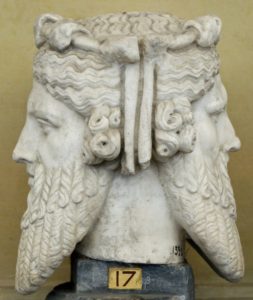 “This year, I’ll save more, exercise regularly, eat healthier, and, oh yes, finally stop binge-watching shows till 3 a.m.” If that sounds familiar, congratulations, you’re in the club of ambitious planners with questionable follow-through.
“This year, I’ll save more, exercise regularly, eat healthier, and, oh yes, finally stop binge-watching shows till 3 a.m.” If that sounds familiar, congratulations, you’re in the club of ambitious planners with questionable follow-through.
When it comes to New Year’s resolutions, are you smashing your fitness and personal goals, or have you fallen victim to a pile of broken promises while keeping up with Snapchat streaks instead? But don’t fret; you’re merely participating in a grand old tradition. You might be intrigued to know that the concept of “New Year’s resolutions” dates back over 4,000 years to ancient Babylonia.
The Babylonians: Pioneers of Resolutions
 The ancient Babylonians were among the first to mark the New Year with celebrations, rituals, and—you guessed it—resolutions. The Babylonians, known for their stellar achievements in agriculture, mathematics, and astrology, were also early adopters of the “new year, new me” philosophy. Their new year, however, didn’t start in January. It coincided with mid-March to April, the time for planting crops.
The ancient Babylonians were among the first to mark the New Year with celebrations, rituals, and—you guessed it—resolutions. The Babylonians, known for their stellar achievements in agriculture, mathematics, and astrology, were also early adopters of the “new year, new me” philosophy. Their new year, however, didn’t start in January. It coincided with mid-March to April, the time for planting crops.
“There is a lot of written documentation about new year festivals in ancient Babylonia, Syria, and other places in Mesopotamia tied to the notion of the start of the New Year,” says Eckart Frahm, a professor of Near Eastern Languages and Civilisations at Yale University. (Source: nelc.yale.edu).
They welcomed the New Year with Akitu, a 12-day grand festival, where the Babylonians crowned new kings or reaffirmed loyalty to the reigning ones. Alongside the royal pomp, they made solemn promises to their gods—pledges to return borrowed objects or settle debts, just like we do at the end of the year. These vows were crucial; keeping them meant staying in divine favour. Slipping up? That could land you out of the gods’ good books, a situation no Babylonian wanted to face.
The Romans Get Involved
Fast forward to 46 B.C., and we find Julius Caesar tinkering with the calendar to establish January 1 as the start of the year. This new date was dedicated to Janus, the two-faced Roman god of doorways, beginnings and transitions. The name January is also derived from Janus’s name. With one face looking back at the past and the other gazing into the future, Janus symbolised reflection and forward-thinking. He was the perfect mascot for New Year’s introspection. The Romans offered sacrifices to him and made promises to be better in the coming year. Much like ours, their resolution too often involved good behaviour, though we suspect their version didn’t include vowing to eat fewer carbs.
In his book Astronomy Through the Ages: The Story of the Human Attempt to Understand the Universe (1997), Sir Robert Wilson notes that in 45 B.C., Julius Caesar introduced a reformed calendar, later known as the Julian calendar. Designed by the mathematician Sosigenes of Alexandria, this calendar shifted the start of the New Year from mid-March to January 1. Although it slightly overestimated the solar year’s length, the Julian calendar remained in use until 1582, when Pope Gregory XIII introduced adjustments that resulted in the Gregorian calendar, which we follow today.
Resolutions Evolve Over Centuries
What started as vows to gods in ancient Babylonia and Rome gradually shifted in tone and purpose. With religious underpinnings fading, resolutions evolved into personal, secular promises. The essence remained the same, welcoming the year with the hope of becoming better. By the 18th century, they became more about self-improvement and moral betterment, gaining popularity in Europe and America.
Modern Resolutions
Today, resolutions have taken a decidedly individualistic turn. Instead of pleasing the gods or Janus, we aim to satisfy fitness goals, financial ambitions, or personal growth. Statista, a global data and business intelligence platform reports that top resolutions still revolve around exercising more, eating healthier, and saving money. Yet, an increasing number of people are opting out altogether, perhaps having learned from years of unmet expectations.
Why Do Resolutions Fail?
The tradition may be ancient, but the struggle to stick to resolutions is timeless. Experts often cite over-ambition or lack of planning as the main culprits. A Babylonian king could lose divine favour for breaking his vow, while today, we merely lose our motivation—and maybe some cash spent on unused gym memberships.
A Hopeful Tradition
Despite its challenges, the essence of New Year’s resolutions remains constant: a desire to welcome the future with optimism and a commitment to betterment. Whether it’s vowing to hit the treadmill, break social media habits, or finally read that novel gathering dust on your shelf, resolutions reflect our timeless hope for self-improvement.
As we embark on yet another year, let’s cut ourselves some slack. Resolutions don’t have to be grandiose or world-changing. Sometimes, they can be as simple as drinking more water daily. And if you don’t have a resolution, that’s okay too. After all, history proves that we’ve been making and breaking resolutions for millennia. So whether you’re chasing fitness goals, financial stability, or just a better version of yourself, remember: it’s not about perfection but progress.
Cheers to another year of trying—and maybe failing—but always hoping.



